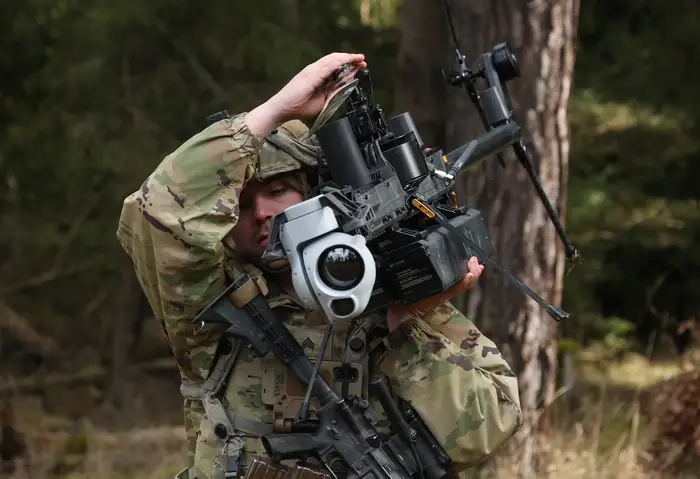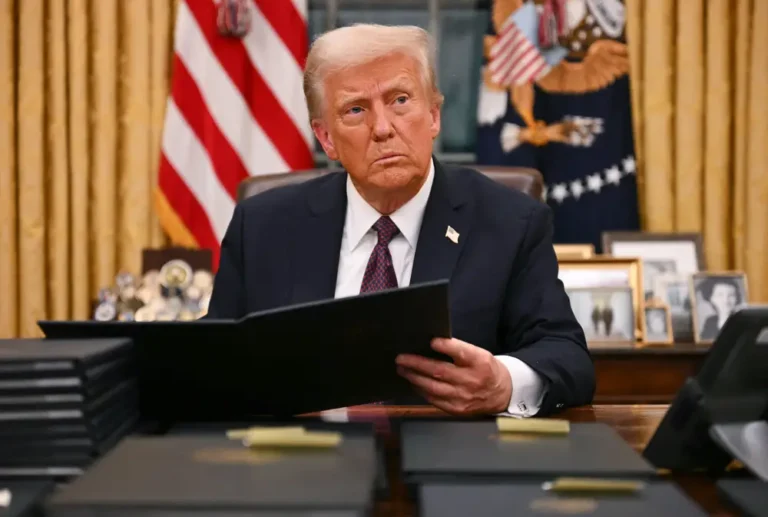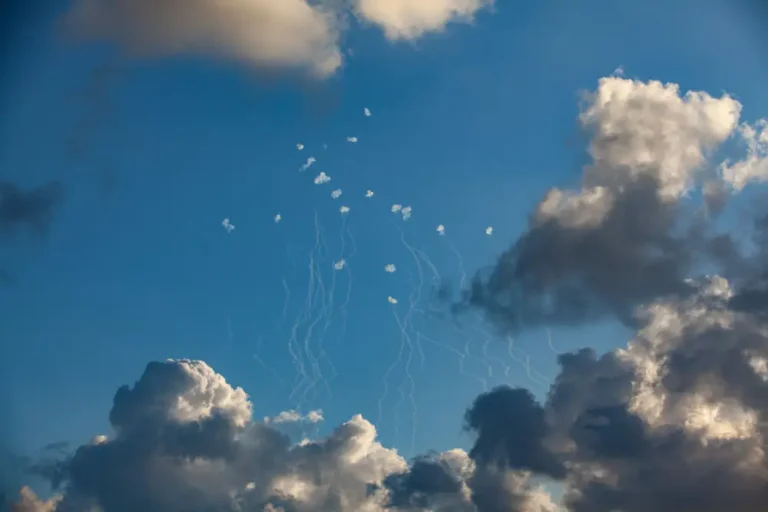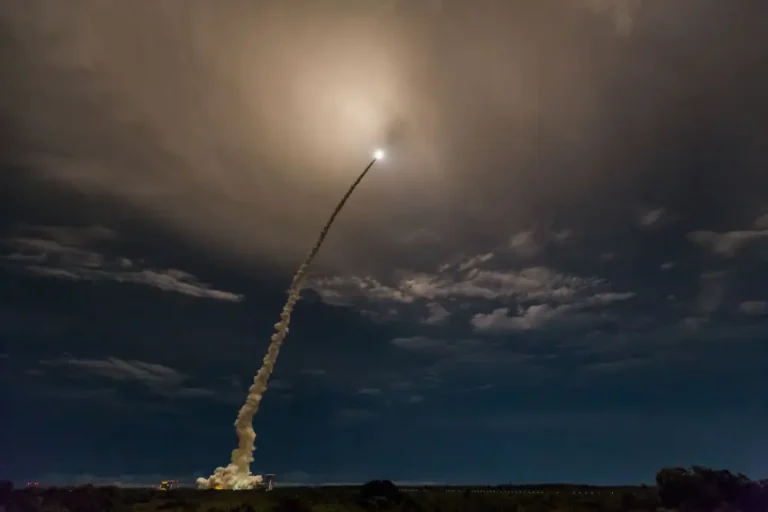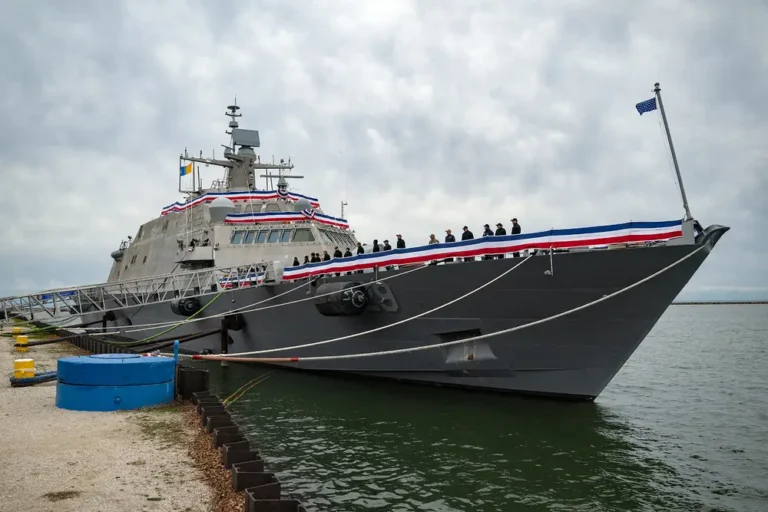If South Korea decides to get involved in Ukraine, it has powerful options
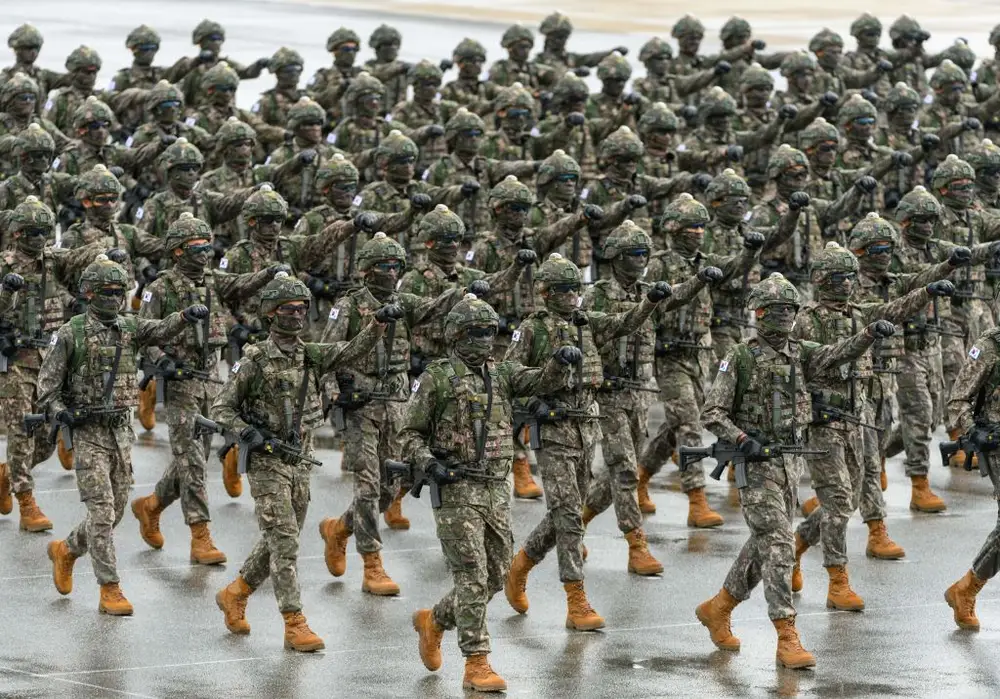
South Korean soldiers on parade in Seoul.
South Korea threatened to send weapons and resources to Ukraine in response to its longtime foe, North Korea, escalating support for Russia’s invasion.
If it goes ahead, it could prove a powerful ally.
After an emergency National Security Council meeting this week, top South Korean officials condemned North Korea for sending troops to Russia.
Their mission has not been made explicit, but Ukraine has said they are there to join Russia’s invasion.
Officials also briefed news outlets that Seoul could send weapons to Ukraine as part of a series of phased countermeasures.
South Korean news agency Yonhap on Tuesday cited security officials who said Seoul could even send military personnel to Ukraine to monitor North Korea’s presence in the conflict.
Russia’s foreign ministry threatened South Korea with “security consequences” should it get involved, Yonhap reported.
A fearsome arsenal
Analysts say Russia has a good reason to be concerned.
“South Korean weapons could potentially make a significant difference on both Ukraine’s defensive capabilities and offensive capabilities,” Jeremy Chan, a China and northeast Asia analyst at the Eurasia Group, told B-17.
South Korea, a US ally, has built a formidable arsenal of weapons in its decadeslong stand-off with North Korea.
It includes antiaircraft and anti-missile systems which could help Ukraine defend its towns and infrastructure from Russian attacks, Chan said.
There are also “world-class” K9 Howitzer guns, K2 tanks, and multiple-rocket-launcher systems, Chan said.
Seoul has already aided the supply of much-needed 155 mm shells to Ukraine, albeit at one remove.
South Korea sent ammo to Western allies like the US and Poland, which freed them up to send their own to Ukraine.
Ellen Kim, a Korea expert with the Center for Strategic and International Studies in Washington, DC, told B-17 that South Korean support for Kyiv could include giving intelligence on North Korean weapons and tactics.
“South Korea could assist in a psychological warfare campaign against North Korean soldiers who may not want to fight in the war” as well, said Kim.
US Defense Secretary Lloyd Austin said on Wednesday “there is evidence” that North Korean troops were already training in Russia, and warned against them joining the fight.
Experts on the country’s military told B-17 that soldiers sent there would be put under harsh measures to discourage them from deserting.
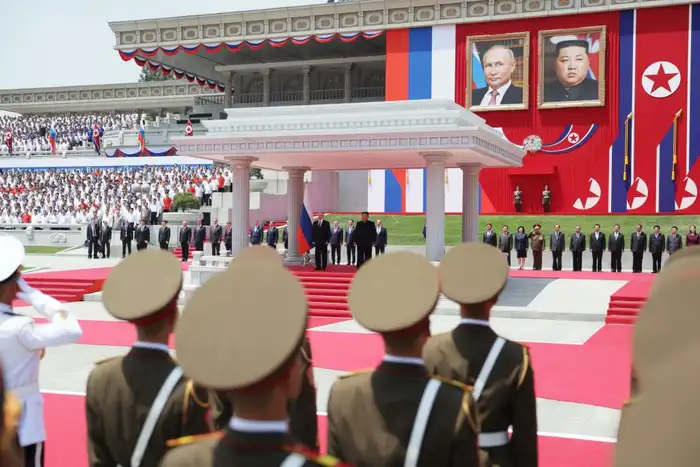
North Korea’s Kim Jong Un and Russia’s Vladimir Putin at a military parade in Pyongyang in June.
South Korea hesitates
Significant obstacles stand in the way of South Korea arming Ukraine, though. Not least is South Korea’s long-standing ban on sending military assistance to foreign countries at war.
Chan said South Korea’s President Yoon Suk-yeol was domestically unpopular and would encounter difficulties repealing the law via South Korea’s center-left-dominated National Assembly.
“North Korea’s actions would have to present a clearer and more immediate threat to South Korea’s national security before we would expect the National Assembly to authorize export of weapons to Ukraine,” he said.
Another factor is South Korea’s desire to not entirely destroy its relationship with Russia, despite its growing fears about the Kremlin empowering North Korea and emboldening its leader Kim Jong Un, said Chain and Kim, the analysts.
In return for North Korean shells and military support in Ukraine, the Kremlin has sought to stymie UN inspections of North Korea’s nuclear program and could be prepared to hand it sophisticated military technology.
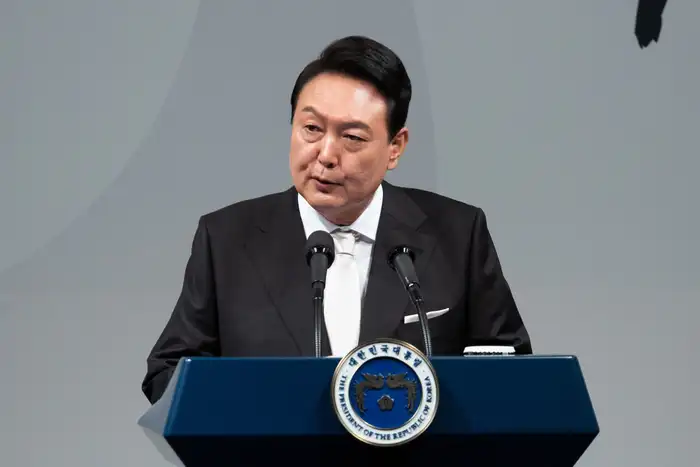
South Korean President Yoon Suk-yeol is mulling sending arms to Ukraine.
Entrapment dilemma
Chan said Yoon was figuring out the best way to deter Russia.
“Seoul believes that the threat to provide weapons gives it more leverage over Moscow than it would have if South Korea were to begin providing weapons directly,” he said.
Future diplomatic and trade ties are another reason South Korea is hesitating to act — as well as the prospect of being pulled further into the Ukraine war than it intends.
“There is a possibility South Korea could be shooting at Russians and/or North Koreans, and it would internationalize and widen the war further,” Sean McFate, a strategy professor at Georgetown University, told B-17.
“Worst case is it sparks a nuclear war on the Korean peninsula that drags the US and China into armed conflict.”
But the escalating alliance between Russia and North Korea may soon reach a point where South Korea feels it needs to act.
Because of Russia’s increasing reliance on North Korea, Kim finds himself in a powerful position to negotiate sophisticated technology in return.
Such an exchange, said Chan, could be the red line that compels South Korea to get involved in the Ukraine war and send weapons.
Although it has the military power to enable Ukraine to hurt Russia, it’s an escalation that comes with real risks.
As Ellen Kim put it: “North Korea’s involvement dramatically raises the risk of entrapment for South Korea in the war.”


